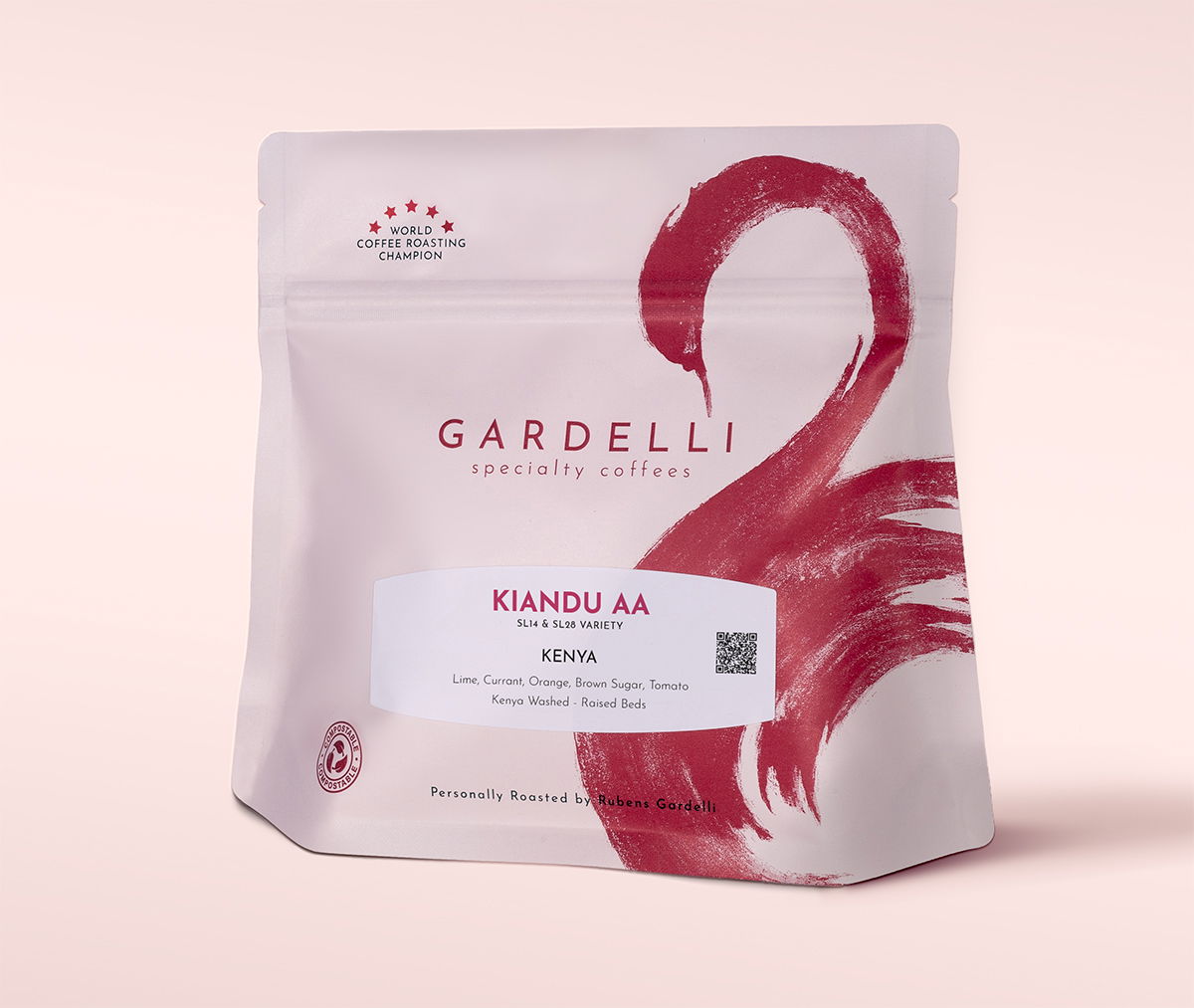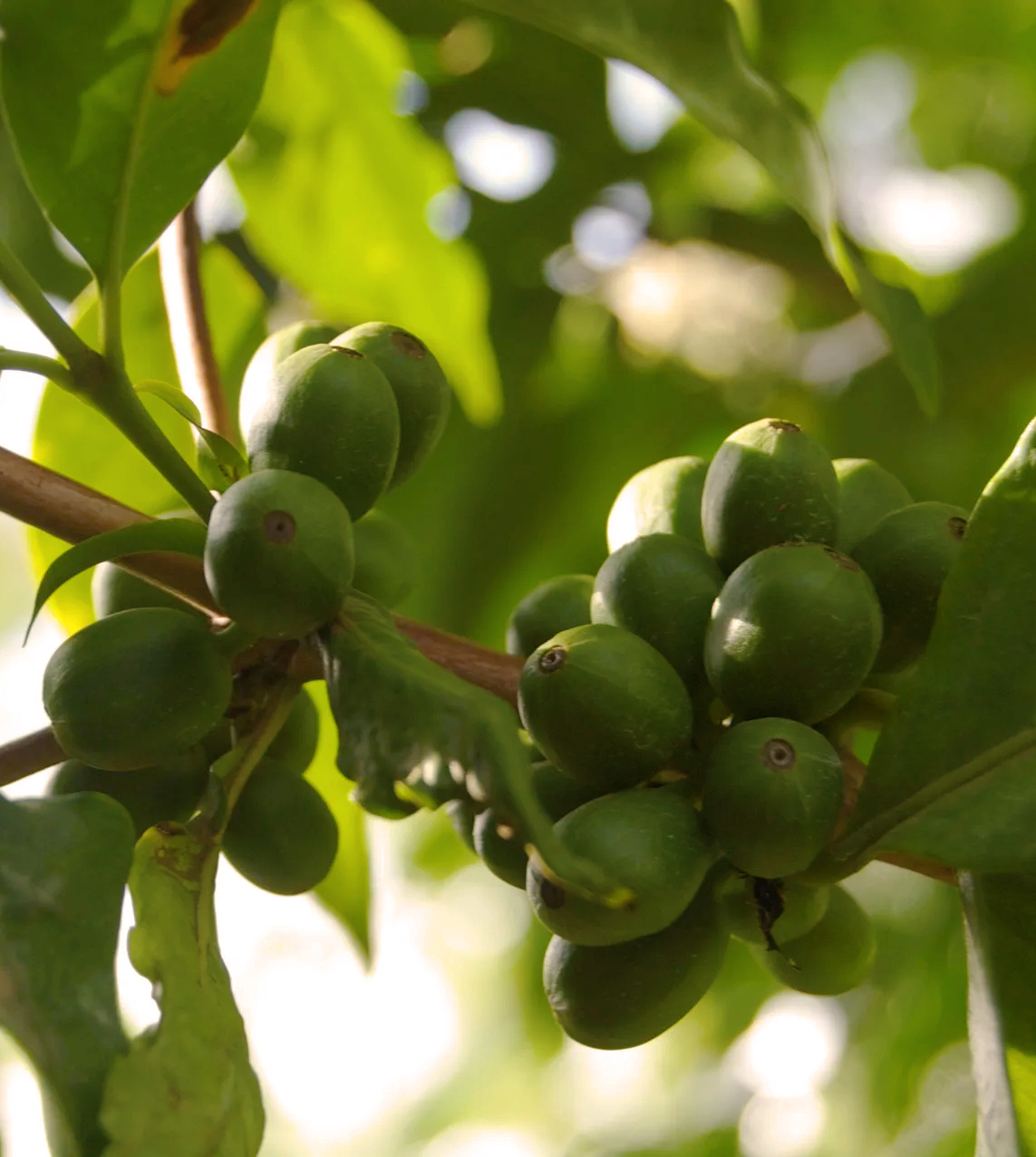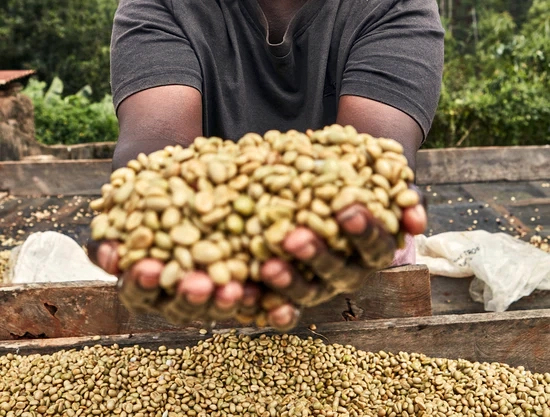











Kenya
Cup Notes: Lime, Currant, Orange, Brown Sugar, Tomato
Get ready to savour the first Kenyan coffee of the season, exceptionally delicate, with a lively, syrupy mouthfeel, perfectly balanced acidity, and a finish that will keep you coming back for more.
Suggested for espresso and filter
when we roast
We freshly roast to order all coffees on Monday, Wednesday and Friday (excluding national holidays), and ship the same day! Cut-off time is 11:59pm (UTC+1) of the day before the roast day. *We only ship whole beans*
This lot was cultivated by a group of smallholder farmers, all members of the Mutheka Farmers Cooperative Society (FCS), who delivered their coffee to the Kiandu Coffee Factory in Kenya's renowned Nyeri County near Tetu.
Established in 2004, Mutheka FCS emerged following the division of the Giant Tetu Coffee Growers Co-Operative Society. Situated east of the Aberdare Ranges and west of Mt. Kenya, Mutheka FCS manages seven factories, to which approximately 6,000 small-scale coffee growers deliver their cherries. Kiandu Factory, one of Mutheka's largest, boasts nearly 1,900 registered members. Despite the high number of coffee factories in Kenya, only a fraction actively process coffee each year. The members of Mutheka FCS cultivate on average 160 coffee trees alongside crops like maize, beans, and sweet potatoes.

SL28 is a renowned coffee variety originally selected in Kenya during the 1930s. It has since spread to other parts of Africa, especially in Arabica-growing regions of Uganda, and more recently to Latin America. This variety thrives at medium to high altitudes, is drought-resistant, but is vulnerable to major coffee diseases. Its rusticity allows it to remain productive even after being untended for years, with many SL28 trees in Kenya still bearing fruit after 60-80 years.
SL28 was developed at Scott Agricultural Laboratories (now the National Agricultural Laboratories, NARL), which were established by the British colonial government in Kenya in 1922. SL28 emerged from research on drought-resistant coffee plants, initially discovered in Tanzania, and became one of the most prized selections during the period of intensive coffee breeding.
Scott Agricultural Labs and other centers like Lyamungo Research Station in Tanzania were key institutions for coffee breeding in East Africa. Over time, coffee research was relocated to larger, specialized stations like Jacaranda Estates, allowing for expanded field trials and experiments.
SL14 was originally selected in Kenya the late 1930s at the Scott Agricultural Laboratories. Individual tree selections made at the Scott Laboratories in Kenya during the 1935-1939 period were prefixed “SL.” SL14 was selected in 1936 from a single tree labeled Drought Resistant II (D.R. II), and drought tolerance is a noted characteristic of SL14. Historical records documenting the origin of D.R. II were lost, but the seedlings were established at Kabete in 1933, and then widely distributed in areas east of the Rift Valley in Kenya. Recent genetic tests have confirmed that SL14 is related to the Typica genetic group. It is economically important in both Kenya and Uganda.
The AA, AB and other grades used to classify lots in Kenya are an indication of screen size only. They do not indicate cup quality. The AA grade in Kenya is equivalent to screen size 17 or 18 (17/64 or 18/64 of an inch) used at other origins. AA grades often command higher prices at auction though this grade is not indicative of cup quality, and an AB lot from a better farm may cup better. PB (denoting Peaberry) is the smallest screen size.

Upon harvesting, ripe cherries are promptly delivered to the factory by smallholder farmers for processing.
Using a Mc Kinnon three-disc pulper, the factory removes the cherries' skin and fruit, employing the wet processing method. After the depulping, the coffee undergoes dry fermentation in tanks for 18 to 24 hours to break down mucilage remaining on the parchment.
Subsequently, the coffee passes through washing channels to ensure thorough fruit removal before a final overnight soak and drying on raised beds. Drying times, spanning 7 to 15 days, vary based on climate, temperature, and production volumes.
